If you and I are part of a simulation have you considered time, and seeing outside of that simulation? Real Life 2.0 (RL2.0)
A few days ago I explained some concepts and posed a way we might know if we were in a simulation or not. This article will focus on some same thoughts that arise if you decide that you are in fact in a simulation.
I have not decided that I am in a simulation, but I very much enjoy speculation/hypothesis, and thought experiments. When I am doing such things I do not believe they are true. They are simply things I personally find interesting and thought provoking that were stirred up by my imagination. It is my hope that some of you think so too.
Time
Once you decide that perhaps you are in a simulation one of many unnerving thoughts that likely will enter your mind at some point is the following: What if they reset or turn off the simulation?
That may have arisen from or lead you to the question. How long has this simulation been running? The creators (aka gamers/scientists) that started this simulation must have a lot of patience.
That is where the fun part comes in. You realize that if we are in a simulation then all the rules by which our simulation operates, time operates, etc may have nothing to do with whatever version of reality the people who started the simulation and may or may not be observing it reside in. Our orderly world may be completely alien to the world in which the machine housing it is actually residing. It may not be alien at all, yet still be a super simplified version of their reality (much like our games). More on that later as this is a truly deep and interesting rabbit hole.
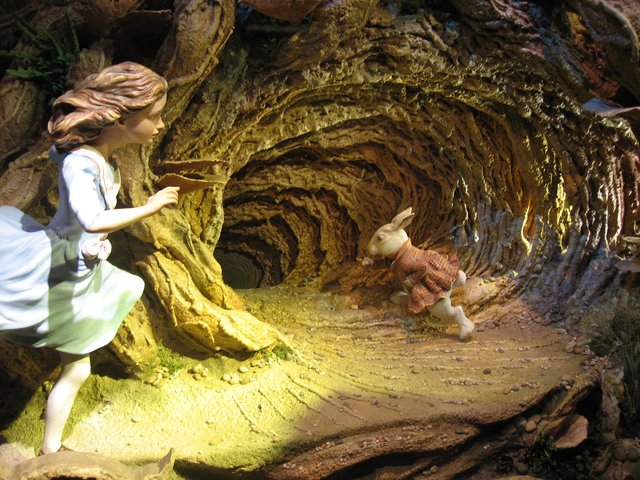
Source: www.writerightwords.com
On the subject of time
This is another place where we can again look to the passage of time in our own simulations. We often change the speed of time in games and simulations. Watching a simulated galaxy for example in physics, or the simulated big bang event in real time would be unfeasible. We greatly accelerate time. In fact in most simulations and games we do accelerate the speed of time in order for the information from the simulation to be readily available. We also have games where we inhabit a character that time flows closer to real time, yet even in those cases the day/night cycle is still greatly accelerated so we experience the passage of many days in game to the one game we played in what we refer to as RL (Real Life). There are some games where we slow time down for features such as bullet-time so your character can zip between speeding bullets. We also typically have a pause feature that let's us stop the flow of time and resume where it left off when we are ready.
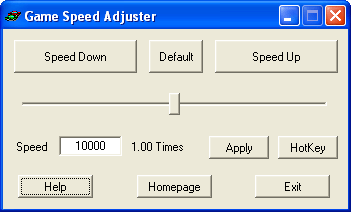
Source: www.pc2download.com

Source: giphy.com
Would it be truly surprising for all of these things to NOT be applied to any simulation we were in? As the simulant inside of a simulated reality none of these things would be apparent to us when they happen. If time is accelerated to us it will feel the same, yet an observer might watch the events and things we do occur at a much more rapid rate. If time were paused so would we. When it is unpaused we would continue. We would not notice.
The interesting thing is when we look at time and relativity. The way time appears to pass normally to the person who is traveling very fast, yet in other parts of the universe that are not moving as fast a lot more time may have passed.
In reality this is a perception thing. I believe (hypothesis) that time is actually constant. If we were in a simulation then there are going to be limits. Finding those limits would be a way to detect the simulation from within. If this is a computer of some amazing kind it too would have some limits. Let's again look at our own games and simulations.
If you move something really fast in a game the computer can only update it's position in what are called frames. If you are moving a sufficient speed in a game that has frames such that your distance covered would not be a smooth movement due to the time delay between frames you would appear to hop to those observing you from outside. You would be so fast you would blink. The person inside the ship or object moving at this speed would also likely perceive oddities outside of their window, unless time and the effect on it was somehow handled at the observer level. There would still need to be a machine constant for some form of cycle as we know it, yet even this may not be true.
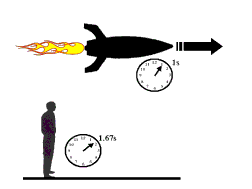
Source: claesjohnsonmathscience.wordpress.com
So if I were going to model our reality as a simulation to explain for time here is how I would do it.
Modeling Time
My simulation would have something that we will call a tick. This is a unit of machine processing power. I would take the speeds of things and break one tick to be representative of the slowest moving objects representation of time. True time in the simulation would be the passage of ticks. So why the slowest?
We already see a time dilation effect as people go faster. A person going very fast comes back home to find years passed. They perceived only a small amount of time passing. This means to handle what they perceived you actually needed less ticks allocated to represent that. Yet the people going slower would have had years passing and you need to allocate ticks to show the passage of time to them and allow their events to unfold.
Each entity would still be operating simultaneously but what would essentially happen is as you got faster you'd be able to ignore that object for a certain amount of ticks.
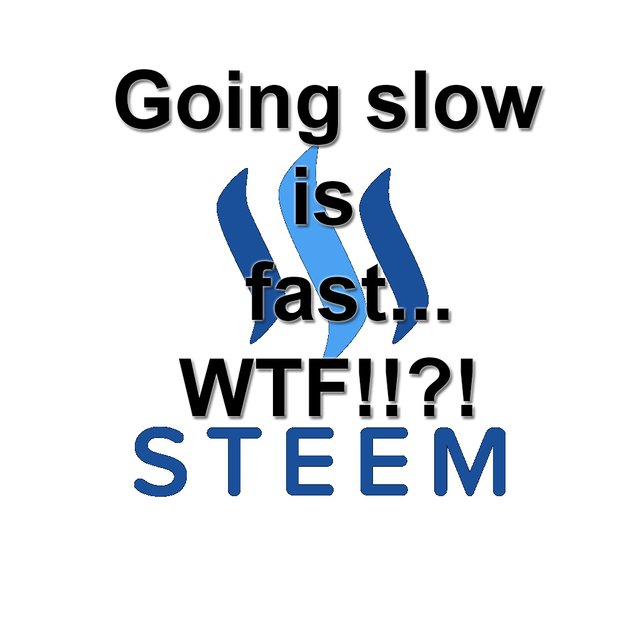
This does introduce problems. What about the people going slow watching someone going fast? This introduces aspects where the object going fast would blink. Actually, no it does not. You could and should still update the position of an object every tick. The perception of that movement, the bodily functions, cellular breakdowns, aging, etc could potentially be ignored until the appropriate tick based upon time dilation. You could still represent the location of the object to people running closer to the simulations actual tick...
Woooh... (wipes brow) this becomes deep and tricky really fast... There are still problems. I think I've laid out some ideas though to show how much we can play around with the idea of time in these thought experiments.
Seeing outside the simulation - RL2.0
Let's move onto another topic within the simulation space. How would we see outside of the simulation? This one is far easier to discuss than time. In my meanderings in this part of my brain I've only come up with a few possibilities here.
The observers are not participants

Source: giphy.com
If the simulation is much like our scientific simulations of the galaxies, or our macroscopic simulation games such as Sim Cities/Cities:Skylines then looking outside of the simulation is likely impossible. We would have no tool to reach beyond the confines of the simulation.
The observers are participants
If the observers are participants and riding around in our bodies like vehicles this could be considered much like The Matrix. It could be beyond that though. If the observer has a mind vastly different from ours they may be able to inhabit multiple of us simultaneously.
If it is the latter form and they are inhabiting multiple people simultaneously it may be impossible to see beyond the simulation unless all the people being inhabited can see this at the same time. So let's focus on the one observer per inhabitant concept.
If there is an observer riding around in you. It could be similar to the matrix, where someone could wake you up and you would awaken in that reality. I don't really need to explain this simply watch the movie if you have not already seen it.
This can go further. What if the observer is riding around in you, yet you are more like a character? When you die the observer creates a new character and inhabits it. Kind of gives some huge HELL YEAH thoughts if you're into the reincarnation ideas at all. This could totally explain that, if it is real.
If it is this form then you likely are simply a character. You will not wake up outside the simulation or game. The person that vicariously lives through you could easily have a life beyond this one. They may come back to their save game each day and play their game.
We could be nothing more than some other realities version of an MMORPG (Massively Multiplayer Online Role Playing Game).
Is your mind bouncing to all kinds of crazy places and ideas yet?
Emergent
I want to discuss emergent design. It is something that a lot of game developers avoid because it is much harder to test for bugs, reproduce conditions to fix bugs, etc. It is far closer to reality though. Scientist making a simulation do not avoid emergent design they get excited about it when it happens.
I design games with emergent behavior. This can be very tricky to predict. That is actually why I design them that way. I make games that I WANT TO PLAY, not simply games that I WOULD PLAY IF I WASN'T THE ONE WHO MADE IT AND ALREADY KNOWS EVERYTHING. I don't want to know everything my game will do or what will happen. I want to experience wonder and excitement just like the player. So how do you accomplish this?
As you add entities and systems that operate interdependently of each other with their own sets of data they respond to and you dump them all into an environment and let them do their thing with their own sets of rules the result is incredibly complex. With a simple set of rules on a farmer, a set of rules on a bandit, a set of rules on a fox, a set of rules on a rabbit. They all get dumped into a game world and they worry about their game rules. The fox does not have to know what rules the rabbit is following. It simply follows its own.
As you add more and more of these things you may know the rules of the things that you created, but what happens with these rules becomes truly something way beyond what you can predict or know. It can also create really unexpected unforeseen moments.
What does this have to do with simulated reality?
The rules can be simple. Throw enough pieces together all doing their own thing and the over all picture becomes vastly complex. The butterfly effect (stochastics/chaos theory) falls very well within this concept. It demonstrates how someone like me could make a simulation way beyond my comprehension simply by making pieces with their own rules, and dumping them into an environment to interact together. This leads us to the following...
If we are a simulation that does not mean those who simulated us are vastly more intelligent. They may not be. We could be the result of emergent design.
Funny example of Emergent Design bugs
If you have never heard of Dwarf Fortress it is likely the most detailed game simulation ever made (and still being made), yet it is very difficult to learn to play. If you have will power and perseverance though it will undoubtedly shock you a time or two with things that happen. I am going to summarize from memory a funny emergent behavior bug that one of the two brothers that make Dwarf Fortress shared.
Tarn Adams reads a bug report about cats in the game getting sick and dying. They are vomiting all over the tavern floors and dropping dead. The taverns are filling up over time with cat puke and dead cats. (like I said this game is detailed). Tarn was confused. This was one of those WTF moments...
Years before he had added a system for handling liquids. You could drink part of a potion for a dose. This applied to other things like alcohol and such. The effect this dose had on a person depended upon body mass.
He went on and forgot about it. Later he introduces cats and dogs. Cats will go around and lick up blood pools and other things.
In the taverns as the alcoholic beverages are being carried around they will occasionally spill and leave a puddle on the floor.
It turns out the cats were licking up these puddles and it was treating it as a FULL DOSE of alcohol applied to the body mass of a cat. Result.... sick and dead cats.
That is also an example of why I try to make my games emergent. When you make a game that surprises even yourself with events that happen that is a great thing. Reproducing those events though is a huge challenge.
In parting...
Next time your cat gets sick look for puddles and check for code. File a bug report with our simulation observers.
EDIT: @spalser posted another great related post today too... if you are interested in the topic be sure to check his out. It is good: Our simulated reality computer code in physics











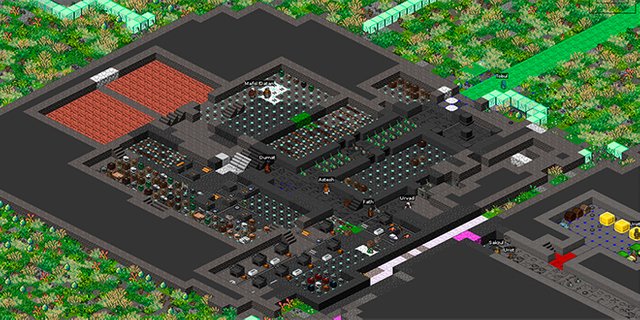
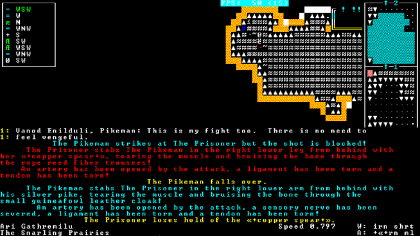

Nice article!
that is cool stuff, if only I had more time to play with my server and write code